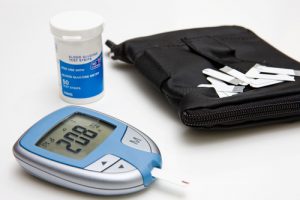Diabetes affects individuals that have a high blood glucose or blood sugar. Either the insulin production is not enough or a person’s cells do not respond properly to insulin, or in some cases both. This disease can lead to complications later in life if it goes undetected. Because diabetes can affect every organ in the body, it is very important for individuals with diabetes to take proper care. If you have diabetes or this disease runs in your family, it is important to recognize its symptoms and control it.
As diabetes can slow the progress of healing, many  physicians are concerned with surgical outcomes in patients with diabetes. Several studies, papers and research has been published on diabetes and surgery. In one example, a doctor wanted to take a closer look at the effects of arthroscopic rotator cuff repair and surgery in individuals with diabetes. Here is what was published in the American Journal of Sports Medicine in April, 2015.
physicians are concerned with surgical outcomes in patients with diabetes. Several studies, papers and research has been published on diabetes and surgery. In one example, a doctor wanted to take a closer look at the effects of arthroscopic rotator cuff repair and surgery in individuals with diabetes. Here is what was published in the American Journal of Sports Medicine in April, 2015.
Diabetes and Arthroscopic Rotator Cuff Repair – Research Findings
Dr. Cho, studied a group of patients that underwent arthroscopic rotator cuff repair surgery. They divided the patients into two groups. One group had insulin dependent diabetes, and the second group were non-diabetic patients. They found that the diabetic group, the incidence of recurrent rotator cuff tears after surgery was 35% compared to the re-tear rate in a non-diabetic group that was 14%.
The authors/researchers then assessed a group of patients with diabetes, and analyzed whether their diabetes was under control or not. They found that the uncontrolled diabetic patient with poor glycemic control with a hemoglobin A1c that was elevated had a recurrent tear rate of 43.2% versus patients that had good glycemic control, the retear rate was only 25.9%.
In conclusion, the author stated that there is a higher recurrence rate of rotator cuff tears in patients with diabetes, but even a higher recurrent tear rate among diabetic with poor glycemic control.
This article has clinical significance and that surgeon should counsel their diabetic patients to make sure that they have good glycemic control during the rotator cuff recovery. Physicians should also caution patients with diabetes preoperatively, as they are at risk for recurrent tearing because of their underlying diagnosis of diabetes.

Recent Comments